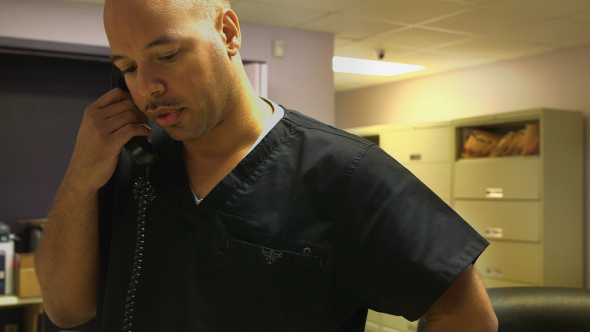On Thursday afternoon, Alabama Gov. Robert Bentley signed a bill that will regulate abortion clinics as if they housed sex offenders. The bill, passed last week by the state legislature, will halt the operation of any abortion provider working within 2,000 feet of a public K-8 school.
State Sen. Paul Sanford of Huntsville introduced the bill to target one specific clinic in his town: the Alabama Women’s Center for Reproductive Alternatives, which already relocated in 2013 to comply with new building code requirements set forth by a targeted regulation of abortion providers (TRAP) law. The clinic’s owner, Dalton Johnson, cashed in his retirement savings to move the center last time; he recalls having trouble getting zoning officials to classify it as a health care facility even then. Now, since the clinic is just down the street from a school, Johnson will have to move it again or shut it down for good.
The new law will also prevent another clinic, West Alabama Women’s Center in Tuscaloosa, from renewing its health center license since its rear property line abuts that of a magnet school, though it’s over a mile from the closest school by road. Rewire reports that the two clinics provided 72 percent of the state’s abortions in 2014. In the recent documentary Trapped, Johnson noted that having just five doctors performing abortions in a state of 4.8 million people. “You just pray they don’t catch a cold.”
Alabama state Rep. Laura Hall said that it was disturbing to see a person make a good-faith, successful effort to abide by a new law, then get punished for it. “It is unfair for an individual to meet the demands of a law that we passed and when they moved, we create another law to put them basically out of business,” she told the Associated Press.
But there’s an even greater hypocrisy at play here: The Republican lawmakers who advocated for the new law justified it as a measure to protect children from the hubbub of protests outside abortion clinics. “Nobody would even know that the building that we were in was even doing abortions if it weren’t for the pro-life activists outside of it,” Johnson told Slate in 2014. The only thing about a reproductive health clinic that could traumatize a nearby child is the harassment anti-choice protesters perpetrate in public view—harassment incited in large part by the alarmist rhetoric furthered by the very same lawmakers who advanced this Alabama law.
Anti-abortion protesters and their enablers aren’t known for their concern for schoolchildren. In 2014, Johnson told Slate that the protesters who targeted his clinic took their shtick to the nearby school itself when his clinic moved. In Washington, D.C., anti-choice groups organized repeated actions outside a school near a planned Planned Parenthood center that wasn’t even built yet, telling children as young as 3 that “they kill babies nearby.”
This is one of the movement’s most shameful tactics, using kids as bargaining chips to send a message to parents: if you want us to stop harassing your children, stop Planned Parenthood from building this clinic. The ACLU, which awarded Johnson a medal last year for his perseverant work with his clinic, has promised to challenge Alabama’s new law in court. In the meantime, lawmakers who truly want to protect children from the vile, fearmongering language outside abortion clinics can pursue an alternate route: enforcing anti-harassment laws.
